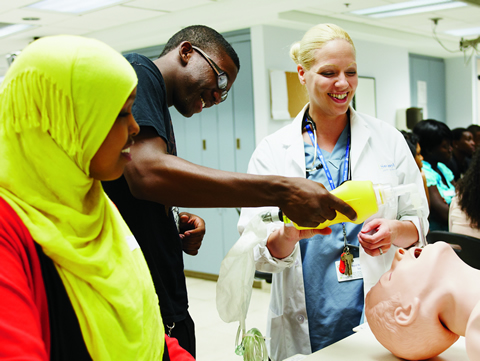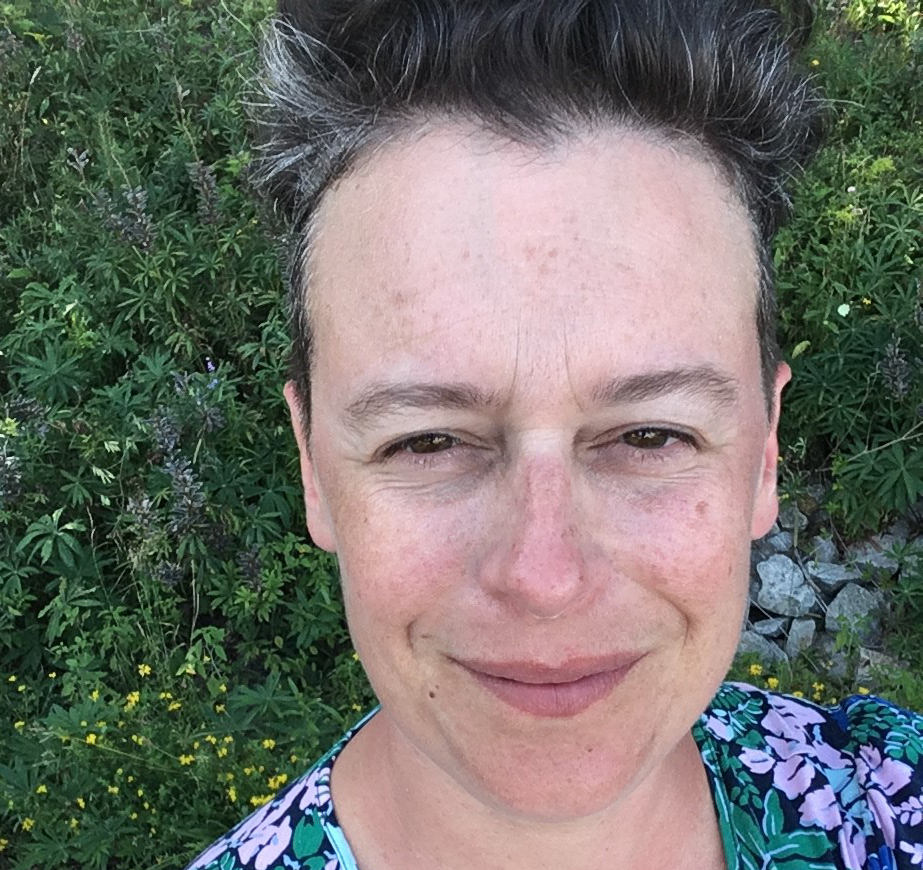The faces of everyone who has ever graduated from U of T’s Faculty of Medicine line two long halls in the Medical Sciences Building. The images of each graduating class, dating back to 1870, tell a story of the medical profession – first of pale men with high collars and strange hairdos, then of the occasional pale woman. But even as the women begin to claim half of the frame and the pictures feature people from a variety of cultures, there are still notable absences.
“Aboriginal students and students from an African background are still very under-represented in medicine, and in health care generally,” says Diana Alli, co-founder of the Faculty of Medicine’s Summer Mentorship Program in the Health Sciences. Several years ago, Alli decided she wanted to change this situation – so that the photos 10, 20 and 30 years from now tell a different story.
The Summer Mentorship Program is designed to introduce high school students from these under-represented groups to the health field – and to post-secondary education generally. The program runs for four weeks each summer, offering participants close-up views of the operating room, the dental lab and other health-care settings, as well as the opportunity to shadow health professionals. Students apply through their high schools.
Dr. Gary Miller, one of the program’s 400 graduates, has just finished his specialist training in ophthalmology. He’s also a former mentor, and says he has witnessed firsthand the life-changing impact the program can have on youth. “Some [students] say it’s the first time they believed they could really amount to anything or succeed academically,” he says.
This summer, 50 young people participated in the program, including Maryan Issa and Malik Paris, both 16. After their first week, the two were deeply enthusiastic about what they were learning. “This mentorship rocks,” says Paris, who is looking to combine his interests in medicine and engineering. The program has helped Issa clarify her career goals, too; she wishes more students could participate in the program.
Alli can provide a stack of moving testimonials and a slew of success stories – students who began the mentorship not considering university but who have gone on to become doctors, lawyers and professors. Ninety-eight per cent of students from the program have gone on to post-secondary education. More than 30 per cent have gone into health care, and more than 10 per cent have gone to med school. It goes to show what a difference a month can make.
Recent Posts
U of T’s 197th Birthday Quiz
Test your knowledge of all things U of T in honour of the university’s 197th anniversary on March 15!
Are Cold Plunges Good for You?
Research suggests they are, in three ways
Work Has Changed. So Have the Qualities of Good Leadership
Rapid shifts in everything from technology to employee expectations are pressuring leaders to constantly adapt







One Response to “ A Month in Medicine ”
I found this about mentorships for high school students very interesting. The idea behind the program, as I understand it, is to encourage African-Canadian and aboriginal students to consider a career in health because they are under-represented in the field.
Yet every year, thousands of bright, young medical school applicants dream of careers as doctors, but are declined because of a lack of available space in medical schools.
The problem is not a lack of interest; it’s a lack of funding for medical schools. The unfortunate downside of this mentorship may be that it gives young people hope of gaining entry into a program that will ultimately be denied to them. Perhaps more attention should be given to increasing class sizes rather than generating greater interest in the medical profession.
Maria Orjuela
BASc 2007